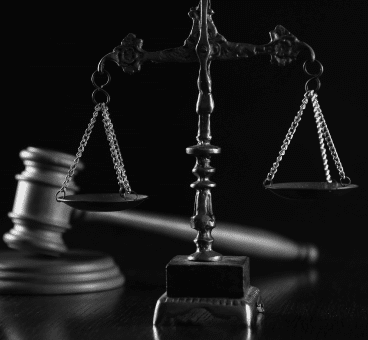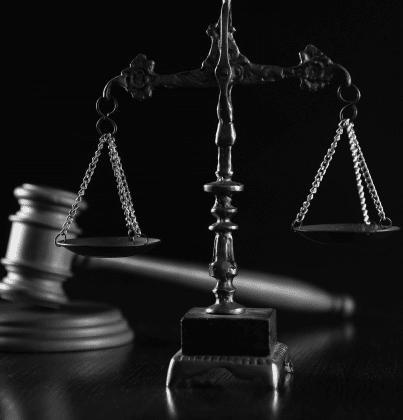What Is Unreasonable Search and Seizure?
The police cannot legally search your person, home, business, or vehicle without a search warrant or probable cause, which lays out what they are searching for and where they can search. Understand what constitutes an unreasonable search and seizure and what exceptions allow warrantless searches. If you think your rights have been violated, the respected professionals at Police Brutality Center may be able to assist you in securing legal help.
Content Last Updated: January 11, 2024
The Fourth Amendment to the U.S. Constitution protects the right to be secure from unreasonable searches and seizures by the government. In this context, courts have interpreted the Fourth Amendment to mean that police and prosecutors cannot use illegally obtained evidence against you. This legal precedent protects you against police and prosecutorial misconduct.
There are exceptions under which the police can conduct a search and seizure without a warrant. It’s important to understand search and seizure law and those exceptions so you know when police have violated your rights.

What Is Unreasonable Search and Seizure?
A search and seizure is defined as examining a person, their home, vehicle, business, papers, and effects to locate and take evidence. The Fourth and 14th Amendments to the U.S. Constitution dictate that searches must be reasonable. This usually requires a warrant from a judge that specifies who and what the police can search and what they can seize.
If your rights were violated, you may be able to sue the police department.
Definition of Unreasonable Search and Seizure
Based on the U.S. Constitution and case law, unreasonable search and seizure happens when law enforcement does not have:
- Probable cause
- A legal search warrant signed by a judge
- Authorization to extend their search based on an otherwise legal warrant
Your rights under the Fourth Amendment of the Constitution and subsequent rulings by the Supreme Court protect you against unreasonable searches and seizures. If a court rules that the police searched without probable cause or a warrant, the judge can exclude that evidence at trial. This doctrine is known as the exclusionary rule.
Illegal seizures sometimes occur before searches, such as in police brutality cases. If the police don’t have legal cause for a stop and restraint, courts will deem it an unreasonable seizure of a person under the Fourth Amendment. The prosecution cannot use any evidence found in a subsequent search against you.


What Is an Acceptable Search and Seizure Under the Law?
Under the Fourth Amendment, the police must affirm probable cause to a judge to get a search warrant. The warrant must specify the place and person or things the police can seize. If a search meets these requirements, courts generally deem them reasonable.
However, there are exceptions to the warrant requirement.
Exceptions When Police Can Search and Seize Evidence Without a Warrant
In determining what is unreasonable search and seizure, courts have ruled that the police can conduct warrantless searches under certain conditions, such as when:
- Items are in plain view: If law enforcement officers are legally on the premises, they can seize items in plain view without a warrant specific to that evidence. They must have probable cause to believe it is contraband or criminal evidence.
- Police get consent from a person with a reasonable expectation of privacy: Someone with legal control over the property, such as a spouse, can consent to a search if you are not there to object. The police can also use deception to get your consent, though courts have limited this power.
- Police are making a lawful arrest: Before 1990, law enforcement officers could only search within easy reach of subjects while making lawful arrests. In Maryland v. Buie, the Supreme Court broadened search powers to include protective sweeps of homes if the police reasonably believe a dangerous person is there.
- There is reasonable belief of evidence destruction: The belief that someone inside is destroying evidence gives rise to exigent circumstances, allowing police to enter a home or business.
- A criminal Is fleeing from the police: If the police are in hot pursuit of a criminal and enter an area where there is typically an expectation of privacy, they do not need a warrant. They can enter, make an arrest, search the suspect, and do a protective sweep of the home. However, they must get a warrant to do a further search.
- There is imminent danger: The police can enter premises without a warrant if they reasonably believe someone inside needs emergency medical attention or is about to face harm.
A review of search and seizure law shows that the rules continue to change. Other changes may occur based on police reform efforts aimed at reducing misconduct.
What Are Notable Cases of Unreasonable Search and Seizures?
The Fourth Amendment outlines rules for searches and seizures but does not include remedies for law enforcement officers violating people’s rights. Several U.S. Supreme Court decisions clarified the law regarding unreasonable searches and seizures.
Weeks v. United States, 1914
Police officers in Kansas City entered Fremont Weeks’s home without a warrant to obtain evidence of illegally transported lottery tickets. They took papers and other items and turned them over to the U.S. Marshals. Mr. Weeks was convicted in federal court.
In Weeks v. United States, the Supreme Court overturned that conviction. The Court ruled that the search violated Weeks’s Fourth Amendment rights and established the federal exclusionary rule stating prosecutors cannot use illegally obtained evidence.
The Court ruled that local law enforcement can’t help the federal government illegally obtain evidence, but it did not address search and seizure in state courts.
Mapp v. Ohio, 1961
In Mapp v. Ohio, the Supreme Court overturned the conviction of a woman suspected of harboring a suspected bomber. The police entered Mapp’s home without a warrant, found pornography in closed containers, and convicted her of possessing obscene materials.
The Court interpreted the 14th Amendment’s equal protection clause to mean that Fourth Amendment protections against unreasonable searches and seizures also apply to state cases. The Mapp case clarified the law regarding probable cause and the exclusionary rule.
Katz v. United States, 1967
Katz v. The United States established that law enforcement officers must obtain warrants based on probable cause to use wiretaps. Katz regularly used a public telephone near his apartment to communicate with sports bookmakers. The FBI attached a listening device to the outside of the phone booth and used that evidence to convict Katz of eight counts of knowingly transmitting wagering information.
The Supreme Court overruled the conviction, stating that Katz had an expectation of privacy in the phone booth. The Fourth Amendment protected him against an unreasonable search and seizure, despite the government’s argument that the device was outside, not inside the phone booth.
What Can I Do if I Was the Victim of an Unreasonable Search and Seizure?
If you were the victim of an illegal search and seizure, you should take three critical actions:
Preserve any evidence. If you are arrested after a search, you may need a family member or friend’s help to collect evidence. Get the names and contact information of any witnesses. If the search happened on the street, check if surrounding businesses have surveillance footage. Your attorney can help you request police body cam footage and copies of a warrant or other paperwork that the police used to justify their actions.
Stay silent, and don’t talk with anyone but your lawyer. You have the right to remain silent. Do not answer any questions from the police after they have taken evidence from you. Do not talk to other people about the search and seizure or comment about it on social media. Tell the police you wish to speak with a lawyer and take their advice regarding publicizing your case’s details.
Enlist the help of a civil rights lawyer: Not every search and seizure results in an arrest, but when the police seize evidence, they do so because it supports their theory that you committed a crime. A civil rights lawyer specializes in cases involving police misconduct and other violations of your rights, and they can help you determine what to do next.
If you were arrested, charged, or convicted based on an unreasonable search and seizure, you need an attorney specializing in civil rights cases to argue that the evidence is inadmissible.
At Police Brutality Center, we have the resources to connect you with experienced, committed civil rights lawyers to help you pursue justice. If you are considering a lawsuit or need advice, get legal help now.

